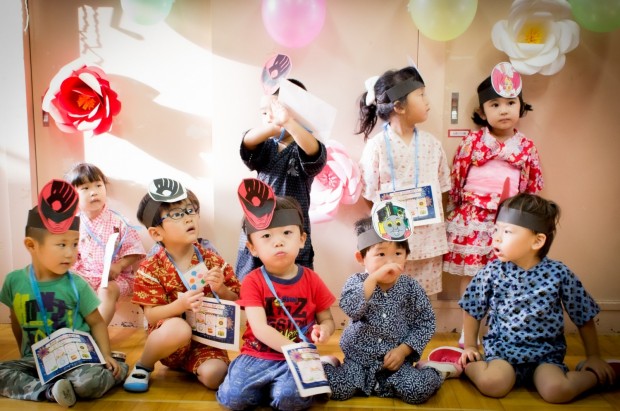Why Early Childhood Education Matters
- (Photo : zoo_monkey on Unsplash)
Most parents want their children to excel academically - to have a passion for learning and to develop intellectual skills that will allow them to pursue success throughout their lives. Yet, what many parents do not realize is that a child's relationship with learning is formed in their early childhood - in preschool years, before children can read, write, add or subtract with any proficiency. In fact, education during a child's youngest years can determine not just their academic success but also their long-term mental and physical health outcomes.
Research on early childhood education has found that preschool can have such a profound impact on a child's life that it might be considered an issue of public health. Parents and educators need to understand what early childhood education does and why it is so significant in the success of their children's lives.
First: What Is Early Childhood Education?
Early childhood education, sometimes abbreviated to ECE, comprises a wide variety of educational programs available to young children aged from birth to about 8 years old. The content and structure of ECE programs will vary, depending on the values and policies of the institution. The most common form of early childhood education is known as preschool, which might be offered through local public schools, religious institutions or for-profit organizations. There are plenty of institutions that position themselves in opposition to traditional preschool formats, with more or less rigid scheduling or curricula designed to promote certain types of learning in little ones. Some examples of alternative preschool movements include Montessori, Waldorf, Reggio Emilia and Bank Street.
For the most part, ECE programs cover a variety of concepts and abilities, to include literacy, numeracy, socio-emotional development and motor skills. Typically, lessons are delivered through a mixture of lessons and play, which allow young students to become familiar with the traditional classroom environment while permitting them physical and emotional space to learn in ways comfortable to them. Early childhood educators are primarily responsible for caring for their students, looking after their physical and emotional needs, and for imparting foundational knowledge and skill.
How Does Early Childhood Education Affect Health?
Research on early childhood education stretches back decades and overwhelmingly demonstrates the importance of ECE in childhood and adult success. One of the most popular studies, from ECE institution HighScope, followed preschool and non-preschool students for more than 40 years, determining that children who participate in early childhood education are more likely to graduate high school and earn higher wages than their less-educated peers. Other studies have found that early childhood education offers young children essential opportunities to socialize and to indulge in their natural curiosity, which helps to build an intrinsic motivation for learning.
However, one of the most intriguing benefits of ECE is its role in public health. Research has found that people achieve roughly 90 percent of their adult brain volume by age 6, meaning the period of early childhood education is critical to the formation of structures and neurobiological pathways which will influence a child's functional development for decades to come. It is critical for children to have positive and constructive cognitive, emotional and physical experiences during this time, as the manner in which their brain develops could impact their likelihood to succumb to numerous adult diseases, such as coronary artery disease, chronic pulmonary disease, cancer and Alzheimer's as well as mental health concerns like anxiety, mood and psychotic disorders.
What Can Parents and Teachers Do?
Without a doubt, preschool (or a comparable ECE program) is a vital element of a child's education. Children are socially ready for some degree of ECE beginning around 2 years of age, and parents can consider increasing the length or type of preschool as children age up. Parents should review the preschool options available in their area and opt for programs that align with their values and interests.
Meanwhile, early childhood educators should do the utmost to prepare for their important roles in childhood development. The best institutions require educators to obtain a BA in Early Childhood Education, which will provide educators with a firm foundation on the needs of the youngest students and the right tools and techniques for encouraging lasting success.
Unfortunately, preschool and other ECE options remain solely the financial responsibility of parents, meaning that many families low on the socio-economic spectrum do not have reliable access to ECE. Thus, parents and educators can campaign for universal preschool across the United States, to ensure that every child has similar opportunities to learn and grow.

















